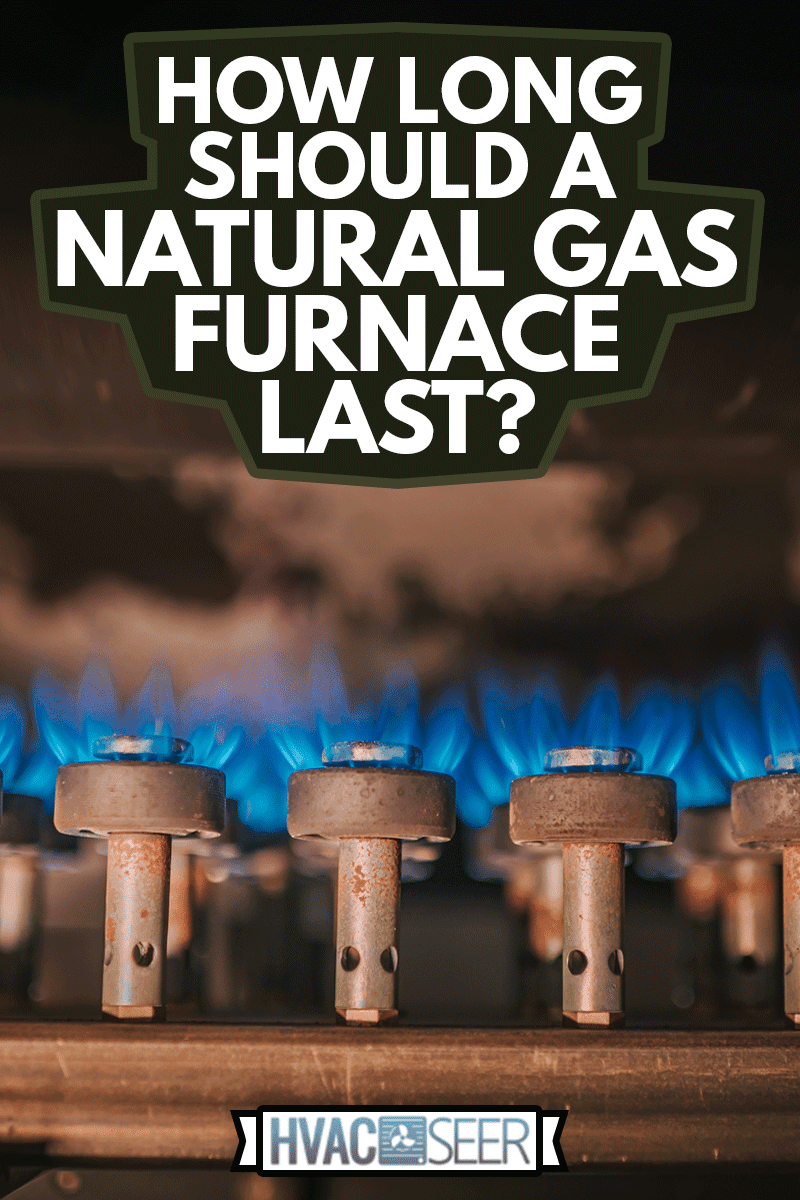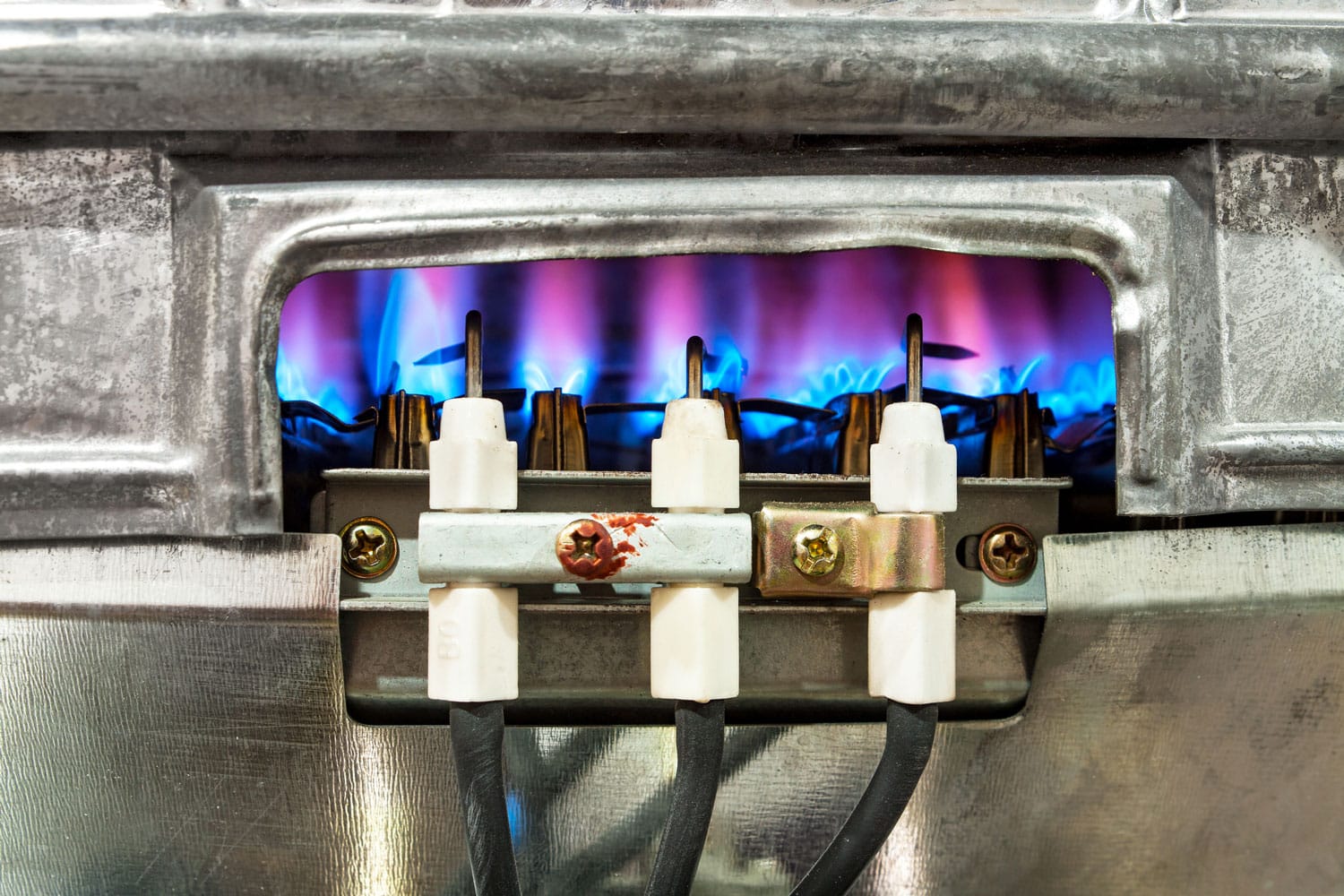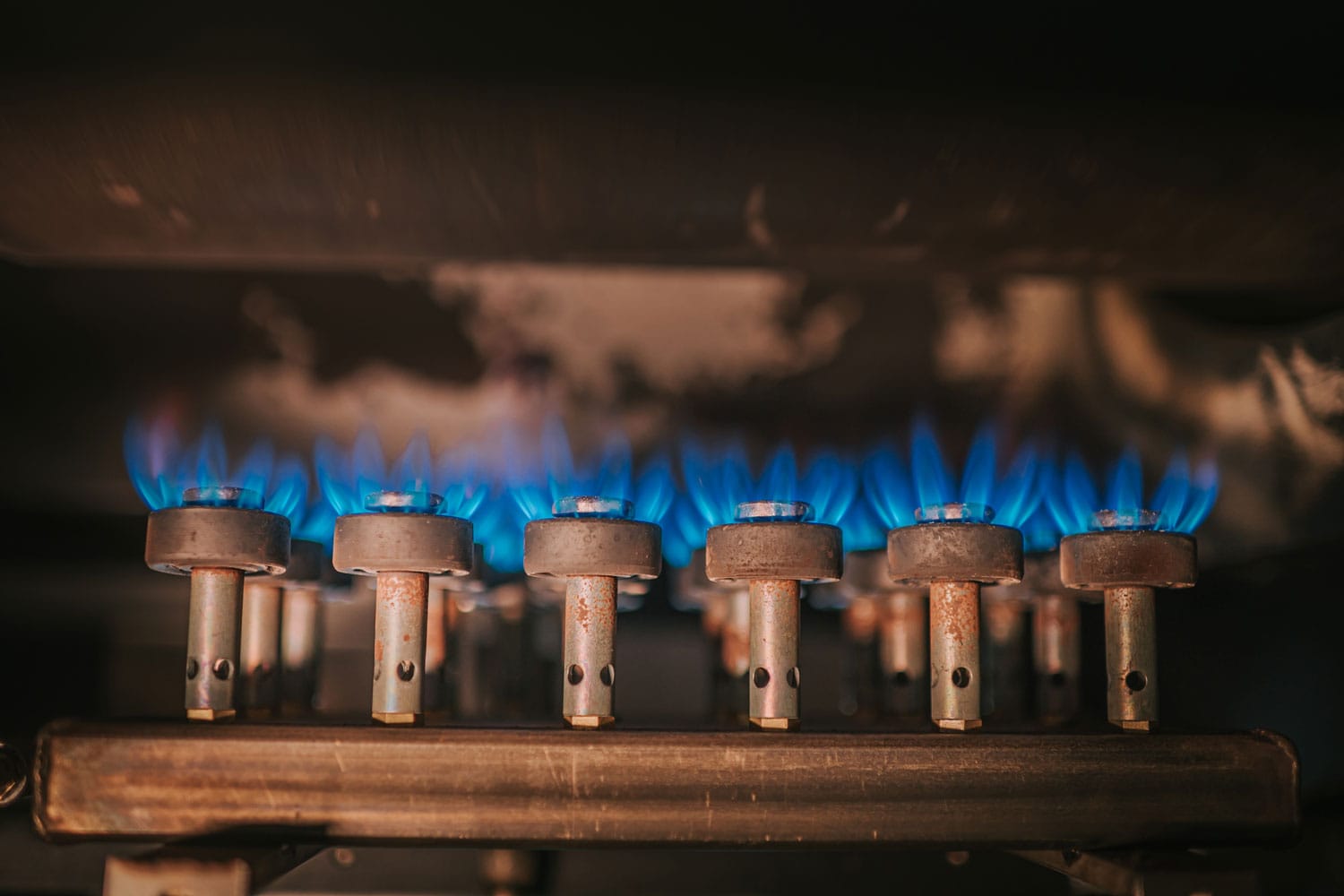As a homeowner, it's normal to want your gas furnace to last as long as possible. After all, these furnaces aren't cheap to purchase or install. But how long should a natural gas furnace last? And how do you know when it's time to get a new one? To assist you, we've researched these inquiries. In this post, we will go over the answers.
A natural gas furnace will typically last anywhere from 10 to 30 years. The unit's make, model, usage, and maintenance will determine how long the unit will last. Of course, scheduled annual maintenance and speedy repairs can go a long way to ensuring that your furnace will last as long as possible.
Sometimes a gas furnace will stop working entirely without any signs that it is in a state of distress. Other times, there may be common signs that the furnace is about to die. Continue reading to learn more about these signs, as well as additional information on replacing a natural gas furnace.

When should I replace my gas furnace?
Most HVAC professionals would recommend replacing your furnace every 15 years after its initial installation. However, furnaces are known to last longer than this. But once the furnace reaches the 10 or 15 years mark, it may begin displaying signs that it's on its last leg. Let's take a look at the most common signs.
The furnace fails a maintenance test
It's best to keep your furnace on an annual maintenance checkup to ensure that it continues to run correctly. During the checkup, the HVAC technician will test all of the system's components to stay on top of anything that needs to be replaced or fixed.
If the technician recommends replacing the entire unit because there are too many repairs that offset the total value of the furnace, it's best to follow their advice. The last thing you want is for the furnace to break down in the middle of winter, causing you to shuffle to get quotes for a new install.
The furnace emits loud noises during operation
Are you starting to notice loud sounds coming from the furnace that wasn't there before? There are various noises that a dying furnace will make that indicate its impending failure. These noises can include rattling, popping, screeching, and loud banging. If you notice any of these noises, it's best to contact a technician and soon as possible to have them inspect the unit.
There is soot in the air the furnace's register
The gathering of soot and dust around the furnace's register indicates that the unit produces too much carbon monoxide. This buildup is usually most noticeable around the grill, register, and you may even notice dust accumulating in your home.
Note that this can be very hazardous to you and the members of your household, so it's best to have a technician take a look at the furnace as soon as possible.
Your energy bills are getting higher
Rising energy bills are one of the most significant signs that a furnace is overworking. If you notice more than a 15% jump in your energy bills from the previous year, you may want to take a look at your HVAC system.
Even with inflation, a large jump typically signifies that either your furnace or central air system is working harder than usual. When considering the bill fluctuation, also take into consideration the age of your furnace. Is your furnace over ten years old? If so, it could be the cause.
Constant repairs are required
If your furnace is over 10-15 years old and you've made three or more repairs to your furnace within one season, it may be time to get a new unit. Sometimes multiple repairs to a unit only provide a temporary fix to a bigger problem. So if you notice that the cost of recent repairs seems to get close to the price of a new install, then it may not be worth the effort or money.
How do you know if your furnace is dying?

If a furnace is dying, it will generally start to malfunction, make noises, emit carbon monoxide, or cause your home's energy bills to rise.
If you notice any of these signs and your unit is over 10 to 15 years old, you may want to have your technician provide a consultation for a new furnace. During their maintenance checkup, they can advise you on whether or not the furnace is likely to make it another season or two.
Can a furnace last 30 years?
Yes. A gas furnace can last 30 years if well maintained. However, this doesn't mean that the unit will be functioning well throughout its lifetime. When a gas furnace has reached the 10 to 15 your year mark, it tends to experience component failure to some degree.
The degree to which it experiences this failure will vary, depending on the unit's make, model, age, and total usage. To put it simply, the unit may last, but you may incur additional costs for repairs to keep it running correctly.
How much does it cost to replace a natural gas furnace?
Installation prices will vary by location, make, model, and size, but a new gas furnace install will typically range anywhere from $1,500 to $4,000 or more. The more complex and bigger the system is, the more expensive the install will be.
How hard is it to replace a furnace?
The level of difficulty to replace a furnace depends on your skill and knowledge level of HVAC-related components. If you have no training, experience, or expertise in this area, replacing your furnace yourself is not recommended.
Removing an old furnace and installing a new one is a rather complex task to take on. On average, it can take anywhere from 4 to 10 hours to complete. Here are some of the tasks involved:
Hooking up the electrical components
When it comes to connecting electrical wires and other components, it's better to be safe than sorry. This is why it's strongly recommended that you let a licensed HVAC professional or electrician perform this task.
One bad wire connection can burn out your entire HVAC system and even cause a fire inside your home. It can also cause the unit to trip your circuit breaker routinely, which can cause a huge inconvenience in your home.
Run performance checks and tests
After the installation, the technician will run a series of performance tests to ensure that the unit runs smoothly. This includes electrical and component tests that involve the utilization of special tools. Chances are, then you won't have these tools on hand, and you may have to purchase them.
You'll also need to learn how to run the proper system diagnostics and make changes where necessary. This takes specialized knowledge and experience with HVAC components—not to mention experience with specific furnace brands.
Physically remove and install a new furnace
Gas furnaces are heavy, clunky, and big. If the new unit is dropped or installed incorrectly, it can cause extensive and costly damage. Also, installing the unit yourself can void the warranty, which is worth considering. Lastly, if you install a different brand or model of furnace, you may need to perform a different system setup than what you had previously, which can cause new and unexpected issues.
An experienced professional will know how to make the proper adjustments so that the new unit can function efficiently. It's also worth noting that a self-installed gas furnace generally won't be appealing to a homebuyer. So if you're considering selling the home in the next five to 10 years, you may want to rethink a DIY furnace install.
Should you replace your furnace and AC at the same time?
There are times when replacing both appliances simultaneously is beneficial and times when it's not. Generally, if your entire system was installed at the same time, the chances are that both appliances will require replacement at the same time.
However, if they were installed at different times, one may be entirely viable for years to come while the other may need an immediate replacement. Here are a few scenarios when it's best to replace both at the same time:
- Both appliances are over 15 years old
- You plan to buy a high-efficiency air conditioner
- Both systems are showing signs of failure
- You are selling the home and want to do a complete HVAC overhaul for increased resale value.
Wrapping Things Up

We hope this post has helped you understand the typical life expectancy of a gas furnace as well as signs that it may be dying. Remember, it's okay to troubleshoot a furnace for minor issues, but it's always best to leave the major repairs and installations to licensed HVAC technicians.
Before you go, be sure to check out some of our other posts:
